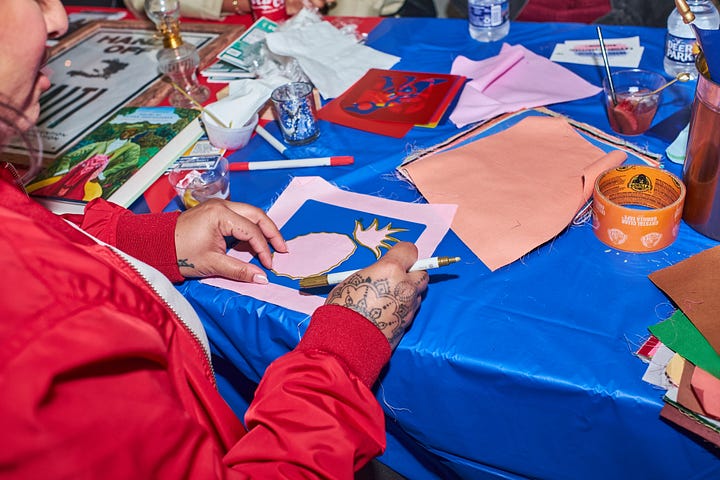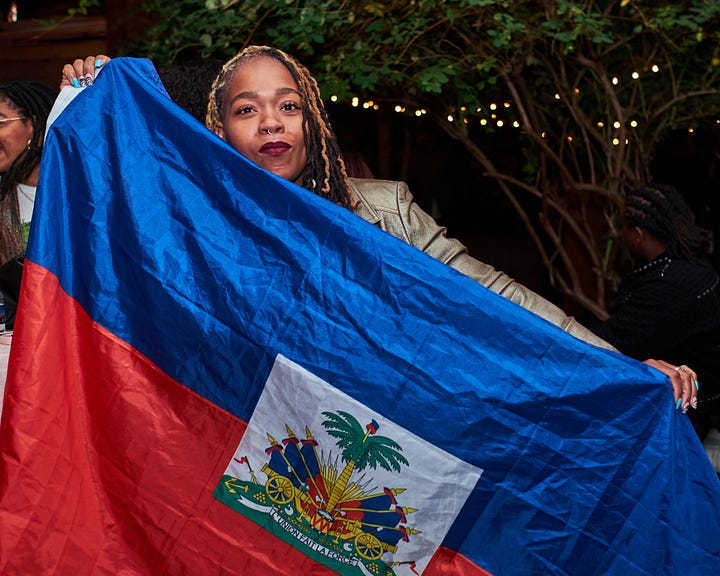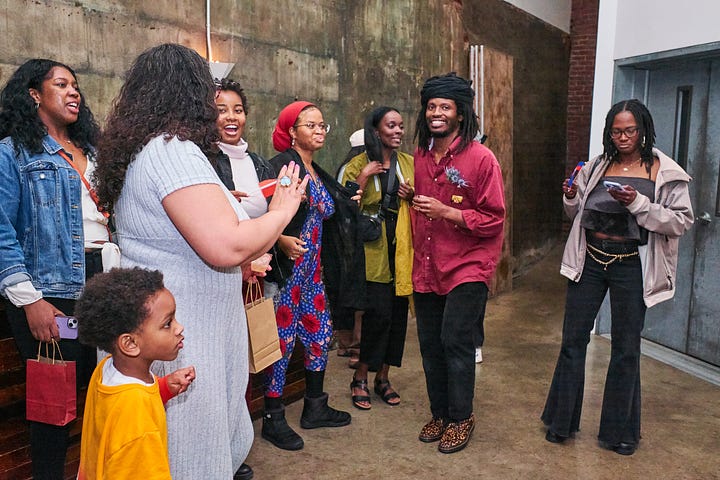May 16, 2025 - May 29, 2025
Welcome to the latest edition of Woy Magazine’s biweekly newsletter, providing you with must-know news and commentary on Haiti and our Diaspora.
We can’t do this work without you. We have introduced a paid subscription option for our newsletter. Consider switching your free subscription to a paid one to support our work! Click the button below.
Bèf pa janm bouke pote kòn li
The cow never tires of carrying its horns
(Haitian proverb)
CHAY LA | Main Story
The current transitional government of Haiti has announced the hiring of Blackwater, a private military company founded by Erik Prince, to adopt a singular military approach to addressing the insecurity crisis. Blackwater’s intervention will include 150 mercenaries to fight armed groups, including makeshift drones to deploy explosives.

The Kenyan foreign mission and the Haitian National Police have not yielded much in terms of regaining control of the West and Latibonit. Instead, the gangs have attacked more communities in the past year, including Kenskòf, Mibalè, and Sodo. The problem with only proposing a military response is that it fails to address the country’s political landscape. It doesn't offer justice sector reform, and neglects to disrupt the higher levels of criminal networks operating within the country.
This decision does not provide justice for the Haitian people but rather exacerbates the underlying issues. Blackwater's history includes a track record of being involved in arms trafficking, and its founder, Erik Prince, has advocated for the US to colonize Africa and Latin America.
It is in this context that Woy Magazine has recently published an article in collaboration with the W.E.B. Du Bois Movement School for Abolition & Reconstruction in Philadelphia, “Maximizing Study and Struggle Between Haiti and Philadelphia”. This is the next in a series of conversations with Haitian activists to offer insight on the state of organizing in Haiti and what is possible. The previous piece in this series was published in collaboration with Hammer and Hope, exploring the reflections and challenges faced by Haitian women activists. With the Abolition Journal, our Lead Editor, Nathalie ‘Talie’ Cerin, had a conversation with James Beltis, a Haitian activist with Nou P ap Dòmi. The conversation offers insights for movement building in Philadelphia and Ayiti.
James: I was one of the leaders of the Montana Accord, which I eventually had to walk away from. But the intention was to tackle issues in new and more creative ways, but the traditional wings of this movement dragged down those efforts.One of the most unfortunate mistakes of this crisis is that so many people stood and asked the police to save us from a crisis that is ultimately geopolitical and regional. The United States is a major arms manufacturer, and as these guns evolve, they become more and more like gadgets.
(…)James: A few years ago, it was estimated that there were 500,000 illegal guns in Haiti. I’m sure this has grown exponentially since those reports came out. The militarization of the Haitian police force alone–because the Haitian police force has essentially become a military force–is entirely equipped with American and Canadian equipment. You look at the civilian defense brigades that neighborhoods have been forced to build to defend themselves, becoming increasingly armed. These three categories, the Haitian police, individual citizens, and the gangs, are heavily arming themselves. No matter how you turn it, it is a situation that has been profitable for American arms manufacturers.
Haiti’s politicians have ignored that Haiti is becoming a bigger market for gun manufacturers in the West, and instead have supplemented this market in the name of “fighting gangs.” Instead of investigating the police force’s ties to the gangs, they have instead continued to buy more and more guns for this force. They have tried this strategy for three years with no results, until we find ourselves in a situation where everyone is now waiting for the capital to fall.
Talie: And like you say, this strategy automatically assumes that the police are for the people, when in reality, the police are all intertwined. We don’t even know where the police end and the gangs begin. (Source: Abolition Journal)
POLITIK/POLEMIK
Pelig Dam Disrupted by Self-Defense Group
A civilian auto-defense group in the commune of Mibalè has recently halted operations at the Peligre Dam, resulting in power outages in Pòtoprens and disrupting the water supply to the Latibonit region. The group's actions are intended to pressure the central government to respond decisively to the escalating gang invasion in Mibalè. The Peligre Dam, built in the 1950s as part of the Artibonite Valley Agricultural Project, is Haiti's primary power plant facility, with a capacity of 54 megawatts.
This development highlights the gravity of the ongoing security crisis in Haiti, as gangs continue to expand their influence and control over critical infrastructure. The potential consequences of mismanaging the dam could lead to severe flooding, even affecting the neighboring Dominican Republic. The recent negotiations between the self-defense group and the government have resulted in the latter regaining control of the Peligre Dam, but the situation remains precarious.
MIGRASYON/MIGRATION
Granmèsi Washington
This past Friday, the Supreme Court announced a decision that advocates are calling the “largest mass delegalization event in the history of the United States.”
The Supreme Court has decided that up to 500,000 Haitians, Cubans, Nicaraguans, and Venezuelans can be lawfully stripped of their humanitarian parole status. Many people who had six months to a year left on their CHNV parole woke up Friday morning to find that their legal status had been terminated effective immediately.
Sit-ins in Pòtoprens
Despite the real risks to using one’s body to protest in the streets of Pòtoprens today, people continue to demand better treatment and resources from the transitional government. The Ministry of Social Affairs has begun distributing 100,000 Gourdes to displaced families, targeting 10,000 people, with a focus on 3,400 individuals with disabilities. This decision was made in response to a protest held by a group of disabled citizens outside the government disability office. However, the allocated amount is insufficient considering the cost of living in relatively stable areas such as Petyonvil and Dèlma.
On May 23rd, various feminist and Haitian groups organized a sit-in in front of the Ministry of Foreign Affairs and Culture in Haiti to draw attention to the plight of Haitian mothers, both within Haiti and abroad. The protesters demanded that the Haitian government take concrete steps to support and protect mothers against the discriminatory policies against Haitian pregnant women in the Dominican Republic. Lourdia Jean-Pierre, a Haitian mother in the Dominican Republic, recently died in labor after avoiding going to the hospital out of fear of being deported. These are the stories being uplifted and advocated for.
This protest highlights the urgent need for action to improve the well-being of mothers and children in Haiti, where pregnancy-related complications remain a leading cause of death for women. Ensuring access to prenatal care, education, and safe delivery practices, along with addressing broader societal issues such as violence and inequality, is essential to safeguard the health and rights of Haitian mothers.
KILTIRÈL
Mon Joli Petit Drapeau
Haitian Flag Day took an unexpected turn in Ayiti this year with the Transitional Presidential Council (CPT) choosing Okap as the location for the festivities, rather than the customary city of Akayè, where the flag was first created. Despite disappointment in Akayè, residents cleaned and prepared the city nonetheless. So was the case throughout the country. Haitians commemorated Flag Day with traditional parades, fueled by the participation of thousands of schoolchildren in towns and cities like Kay Jakmèl, Okay, Taba, Leyogàn, and Ti Gwav. Ayibopost covered a series of events that took place in Petyonvil and Dèlma on May 18th, including a foot race, fairs at schools and the Delma mayor’s office, and street performances by rara bands.
As expected, Okap’s May 18th parade was pretty spectacular. The city of Okap is known for its extravagant 18 Mai festivities featuring a parade with marching bands and dance troupes that prepare for the big day, year-round. Photographer, Abellard Elusma, was in the streets of Okap for Woy Magazine.
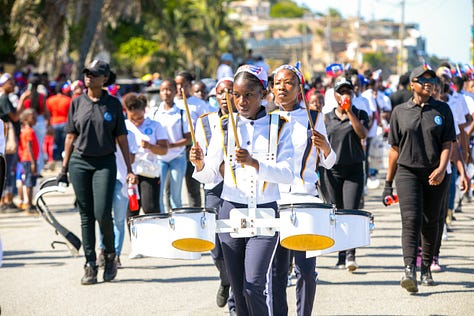
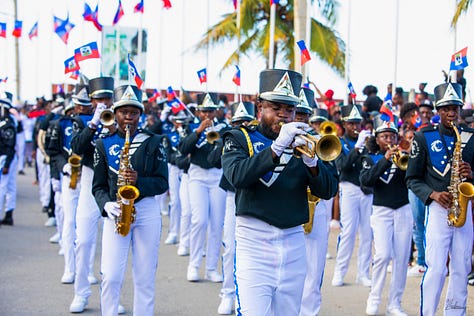

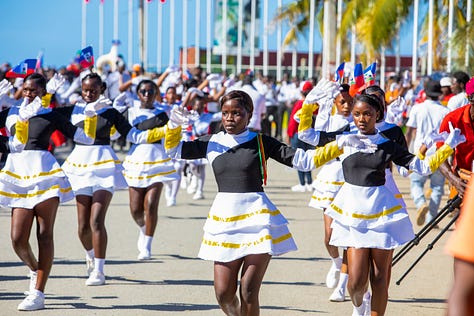
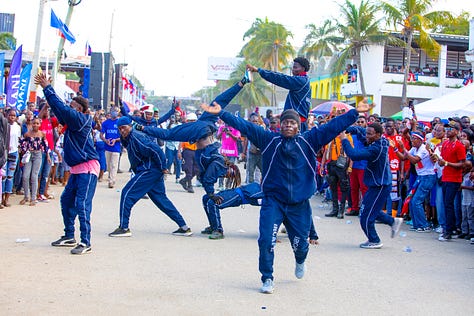
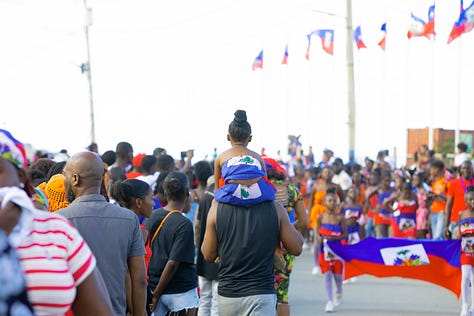
Haitian Flag Day is also widely celebrated among Haitians in the diaspora. Woy Magazine hosted its second annual Haitian Flag Day event in Philadelphia in partnership with Kontan Creative and ThatPiklizJawn. Thank you to everyone who came out to celebrate Haitian history and culture in community with us!
